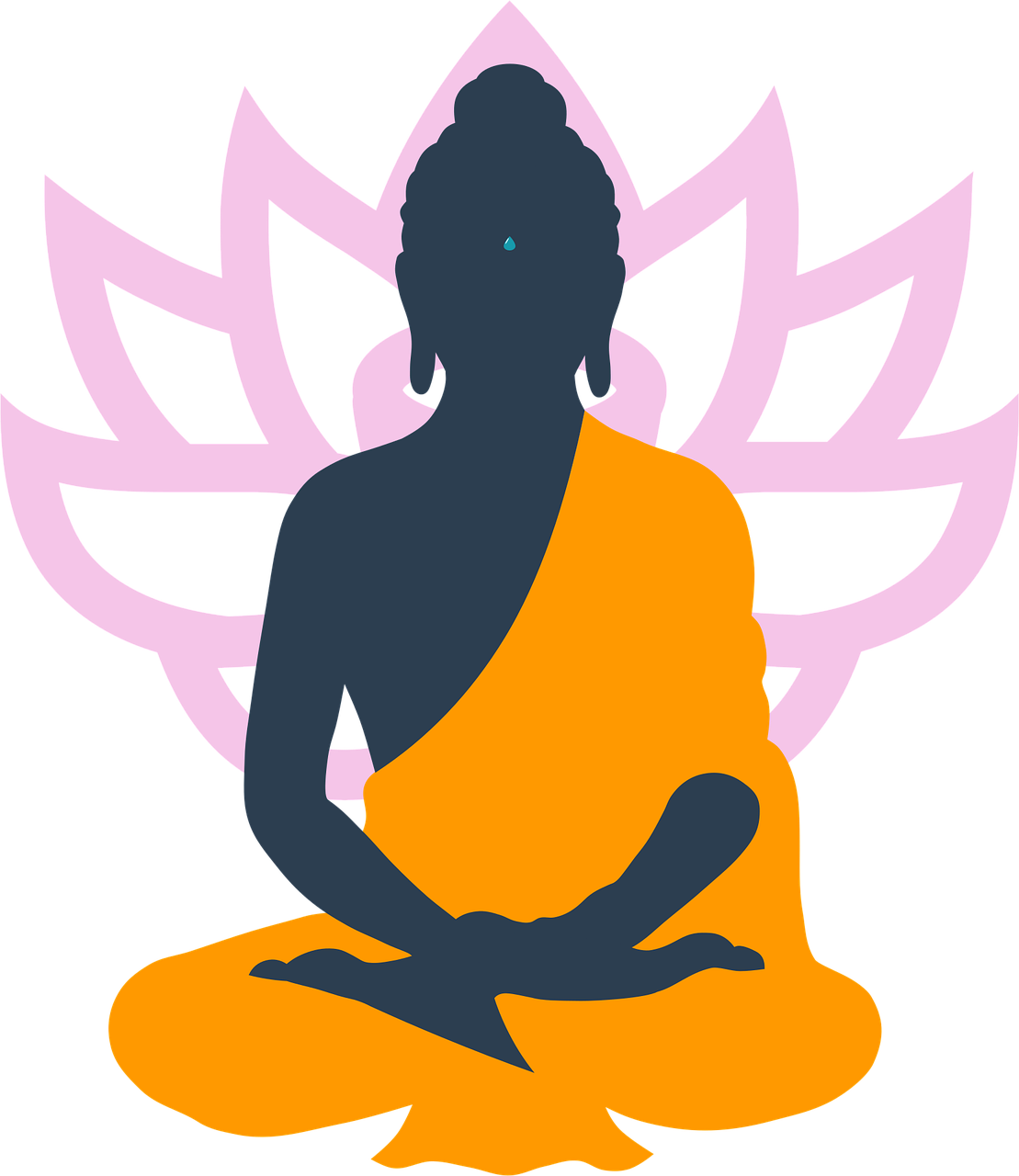In the ever-unpredictable landscape of modern life, crises emerge without warning, testing our mental resilience and capacity to remain composed. From sudden natural disasters to personal emergencies, the ability to stay calm and focused can mean the difference between chaos and control. Around the globe, experts and survivors emphasize that maintaining composure is both a skill and a strategy, shaped by preparation, mindset, and support. In 2025, the importance of employing carefully honed methods such as mindfulness, realistic goal setting, and adaptive problem-solving is more recognized than ever before. These approaches not only help individuals navigate immediate challenges but also foster long-term mental endurance. Amidst this, technology has introduced helpful tools like Headspace, Calm, and Insight Timer, guiding millions worldwide through stress reduction practices. As our interconnected world faces an ongoing stream of challenges, understanding and mastering the strategies to stay calm and focused during crises remains a vital pursuit.
Building a Robust Support Network to Enhance Calm and Focus Amid Crises
In moments of crisis, the instinct to isolate often tempts us, yet research continually shows that a strong support network is foundational to maintaining mental endurance. A well-established community of family, friends, colleagues, or even professional allies can serve as an emotional anchor, providing reassurance and practical assistance during turbulent times.
Building a dependable support network involves several proactive steps:
- Active Engagement: Regular communication with trusted individuals strengthens bonds, ensuring they are primed to provide support when crisis strikes.
- Mutual Support: Community is a two-way street; offering help and empathy to others can solidify relationships and generate a positive feedback loop of care.
- Diverse Connections: Cultivating a network with varied perspectives and skills enriches the resources available for problem-solving and emotional resilience.
- Utilizing Technology: Platforms like Zoom, social media, or messaging apps provide continuous connection even when physical proximity isn’t possible—especially vital in global or prolonged crises.
Consider the example of Emma, a nurse during a large-scale emergency in 2025. She credited her ability to stay calm amidst the chaos largely to her tight circle of friends who provided daily encouragement, shared meditation app recommendations like Buddhify, and offered practical advice. This network not only relieved her emotional burden but enhanced her problem-solving capacity by facilitating diverse input.
Furthermore, crises often ignite collective solidarity. Shared experiences can foster a sense of belonging, reducing feelings of isolation that would otherwise heighten stress. Engaging in community efforts, whether volunteering or online support groups, contributes a purposeful focus that empowers individuals.
Table: Key Benefits of a Support Network during Crisis
| Benefit | Description | Example |
|---|---|---|
| Emotional Buffer | Reduces feelings of loneliness and fear | Having friends call regularly to check on well-being |
| Practical Assistance | Offers help with tangible needs like childcare or errands | Community members organizing relief efforts |
| Information Sharing | Improves decision-making through diverse insights | Exchange of verified news and strategies via group chats |
By intentionally nurturing these connections, individuals can create a resilient safety net that significantly enhances their ability to stay calm and focused, even under intense pressure.

Harnessing Mindfulness and Meditation Apps to Sustain Calm Focus in Crisis Situations
Mindfulness—defined as deliberate, non-judgmental awareness of the present moment—has increasingly been validated by neuroscience as a key practice for managing stress and improving cognitive control. Amid a crisis, the practice of mindfulness equips individuals with the ability to observe their thoughts and feelings without becoming overwhelmed or reactive.
Incorporating guided meditation apps such as Muse, Simple Habit, Calm, and Aura has democratized access to these stress-reducing techniques. These tools offer structured programs that reinforce consistent practice, critical for enhancing emotional regulation. For example, Calm’s “7 Days of Calm” series introduces breathing exercises and body scans that lower immediate physiological stress responses. Similarly, Insight Timer provides thousands of free meditation sessions adaptable to various levels and needs.
Scientific studies have shown that regular mindfulness meditation reduces activity in the amygdala—the brain’s stress center—while strengthening connectivity in the prefrontal cortex, which governs executive functions like attention regulation and decision-making. This biological shift improves an individual’s capacity to respond thoughtfully rather than impulsively during emergencies.
In practical use, mindfulness can be integrated in several ways:
- Brief Grounding Techniques: Simple exercises such as focused breathing or a five-second body scan interrupt stress cycles effectively, even during acute moments.
- Scheduled Meditation Sessions: Regular engagement with a meditation schedule builds resilience over time.
- Mindful Movement: Activities like yoga or gentle stretching, as provided by apps like Buddhify, help connect body and mind, promoting relaxation.
Take, for instance, the case of Daniel, a volunteer firefighter who faces high-stress emergencies regularly. He credits the use of the Muse app, which provides real-time feedback on brain activity during meditation, for his improved focus and stress tolerance, allowing him to maintain composure in life-threatening situations.
Additionally, practicing compassion meditation through platforms such as Happify can aid in managing the emotional toll by fostering kindness towards oneself and others during distressing times.
Table: Practical Mindfulness Practices and Their Crisis Benefits
| Mindfulness Technique | Crisis Benefit | App Recommendation |
|---|---|---|
| Deep Breathing | Reduces acute anxiety and physical tension | Calm, Simple Habit |
| Body Scan Meditation | Enhances awareness of stress indicators | Insight Timer, Muse |
| Compassion Meditation | Increases emotional resilience and empathy | Happify, Buddhify |
Integrating these methods during crisis situations creates an empowering toolkit that supports mental clarity and emotional balance.

Setting Realistic Goals and Problem-Solving Skills to Maintain Focus During Emergencies
When crisis strikes, uncertainty can easily lead to feelings of paralysis or impulsive reactions. Setting realistic goals and developing effective problem-solving abilities provide structured pathways that anchor thoughts and actions.
Realistic goal setting entails crafting clear, achievable objectives grounded in the current reality rather than idealized expectations. Breaking down large challenges into manageable subtasks reduces overwhelm and boosts a sense of progress and control. For example, during a sudden job loss, rather than fixating on an ideal career outcome immediately, setting incremental goals like updating a resume, networking, or exploring training opportunities can make a daunting scenario more navigable.
Key strategies for setting and achieving goals during crises include:
- Clarity and Specificity: Detailing what success looks like helps maintain focus.
- Flexibility: Adjusting plans in response to evolving circumstances avoids frustration and burnout.
- Progress Monitoring: Tracking milestones fosters motivation and adaptability.
- Celebration of Achievements: Recognizing small wins sustains morale.
Alongside goal setting, sharpening problem-solving skills is crucial. Employing an analytical approach—as championed by experts on SurvivorShack’s guide for psychological endurance—helps individuals break down complex issues and evaluate alternatives without being overwhelmed by emotions.
Developing problem-solving competency involves:
- Defining the Problem Clearly: Understanding the root cause prevents misguided efforts.
- Brainstorming Options: Considering diverse solutions from various perspectives increases chances of success.
- Risk Assessment: Weighing pros and cons before decisions mitigates adverse outcomes.
- Implementing and Reviewing: Taking action paired with reflection promotes learning and refinement.
For instance, during the 2024 regional floods, community organizers rapidly applied these steps to coordinate relief supplies, adjusting distribution methods based on weather developments and resources available.
Table: Goal Setting vs. Problem-Solving Strategies During Crises
| Strategy | Purpose | Practical Example |
|---|---|---|
| Goal Setting | Creates focus and motivation | Setting daily tasks to maintain work routine during remote shift |
| Problem-Solving | Provides systematic approach to challenges | Evaluating emergency evacuation routes |
Combining clear goal orientation with refined problem-solving enhances cognitive control, enabling individuals to face crises with calm efficiency.
Prioritizing Self-Care and Overcoming Stigma to Sustain Composure and Mental Strength
In the whirlwind of a crisis, it’s easy to neglect personal care or dismiss signs of emotional exhaustion. However, prioritizing self-care is essential for sustaining mental clarity and physical vitality. This involves conscious efforts to restore energy and manage stress effectively.
Vital self-care practices include:
- Quality Sleep: Maintaining consistent sleep schedules supports immune function and cognitive sharpness.
- Balanced Nutrition: Eating wholesome, nutrient-rich foods ensures optimal brain and body performance.
- Physical Activity: Engaging in regular exercise—using resources like online platforms from Planet Fitness or YogaWorks—regulates stress hormones and improves mood.
- Setting Boundaries: Limiting exposure to distressing news and managing workload reduces burnout risks.
- Engaging in Enjoyable Activities: Hobbies and humor offer invaluable relief and reset emotional equilibrium.
Beyond self-care, recognizing when professional help is necessary is critical. Despite growing mental health awareness, stigma still deters many from seeking support. Destigmatizing mental health care through education and open discussion can empower individuals to access essential resources.
Key signs indicating professional consultation should be sought include persistent depressive mood, inability to perform daily activities, or harmful behaviors. Resources like Woebot and Happify provide accessible mental health support, while counseling services offer personalized care.
Table: Signs When Professional Help is Recommended
| Indicator | Description | Recommended Action |
|---|---|---|
| Persistent Sadness | Feelings last beyond weeks, affecting motivation | Contact mental health professional |
| Impaired Functioning | Difficulty managing daily tasks or decisions | Seek counseling or support group |
| Self-Harm Thoughts | Harming self or others considered | Immediate professional intervention |
Breaking barriers around mental health through transparent conversations encourages help-seeking and reinforces self-compassion—both crucial during protracted or acute crises.
Finding Meaning, Cultivating Gratitude, and Embracing Flexibility for Enhanced Crisis Resilience
Complex crises often shatter routines and expectations, creating emotional upheaval. However, developing a mindset oriented around finding purpose, practicing gratitude, and adopting flexibility can transform adversity into growth.
Establishing meaning helps individuals contextualize hardship within larger life narratives, providing motivation to endure. Viktor Frankl’s principles of logotherapy, which emphasize purpose as a core human drive, remain profoundly relevant in 2025 crises. Amid adversity, purpose imbues struggles with significance, fostering perseverance.
Gratitude practices complement this by shifting focus toward positive elements, even if small. Daily reflections on things to appreciate have been shown to increase resilience and emotional well-being.
- Journaling Gratitude: Writing three daily things for which one is thankful
- Expressing Thanks: Verbally acknowledging kindnesses strengthens social bonds
- Mindful Appreciation: Pausing to savor moments reduces stress
Flexibility is equally critical. Being willing to adapt plans and expectations in response to unfolding realities reduces frustration and opens opportunities for innovation. This fluidity in approach aligns with findings from the Compass Charter Schools’ guide on crisis calm.
Consider Maria, who lost her job in 2025 due to unforeseen economic shifts. By reframing her situation to focus on learning new skills and appreciating small daily successes, her resilience strengthened. Simultaneously, embracing alternative career paths kept her proactive rather than defeated.
Table: Strategies for Meaning, Gratitude, and Flexibility
| Strategy | Role in Resilience | Practical Example |
|---|---|---|
| Finding Meaning | Anchors purpose and motivation | Volunteering in relief work to contribute positively |
| Cultivating Gratitude | Boosts positive emotions and coping | Maintaining a gratitude journal |
| Embracing Flexibility | Enhances adaptability and stress management | Adjusting daily routines based on energy and demands |
Incorporating these approaches creates a resilient mindset that embraces challenges as opportunities for growth rather than insurmountable obstacles.

Strategies to Stay Calm and Focused During Crisis Situations
Pie chart illustrating the proportion of different strategies used to stay calm and focused during crisis situations.
How can I practice mindfulness effectively during emergencies?
Start with short, guided breathing exercises offered by apps like Calm or Insight Timer. Focus on the present moment without judgment, and gradually increase duration as comfort grows. Grounding techniques such as noticing sensations in your body can help maintain focus.
What are some simple problem-solving steps I can use in a crisis?
Identify the problem clearly, brainstorm possible solutions, weigh the pros and cons of each, choose the best option, and implement it. Afterwards, reflect on results and adjust if needed.
How do I know when to seek professional mental health help?
If feelings of sadness or anxiety persist for weeks, interfere with your daily functioning, or include thoughts of self-harm, it is important to seek help from a qualified professional as soon as possible.
How can I build a support network if I feel isolated?
Start by reaching out to trusted friends and family, join community or online support groups, or consider professional networks. Using social apps thoughtfully can also foster meaningful connections.
What self-care practices best support calm during crises?
Maintain consistent sleep and nutrition, engage in physical activity that you enjoy, limit exposure to distressing news, and incorporate relaxation techniques such as meditation or laughter yoga provided by platforms like Buddhify and Happify.


